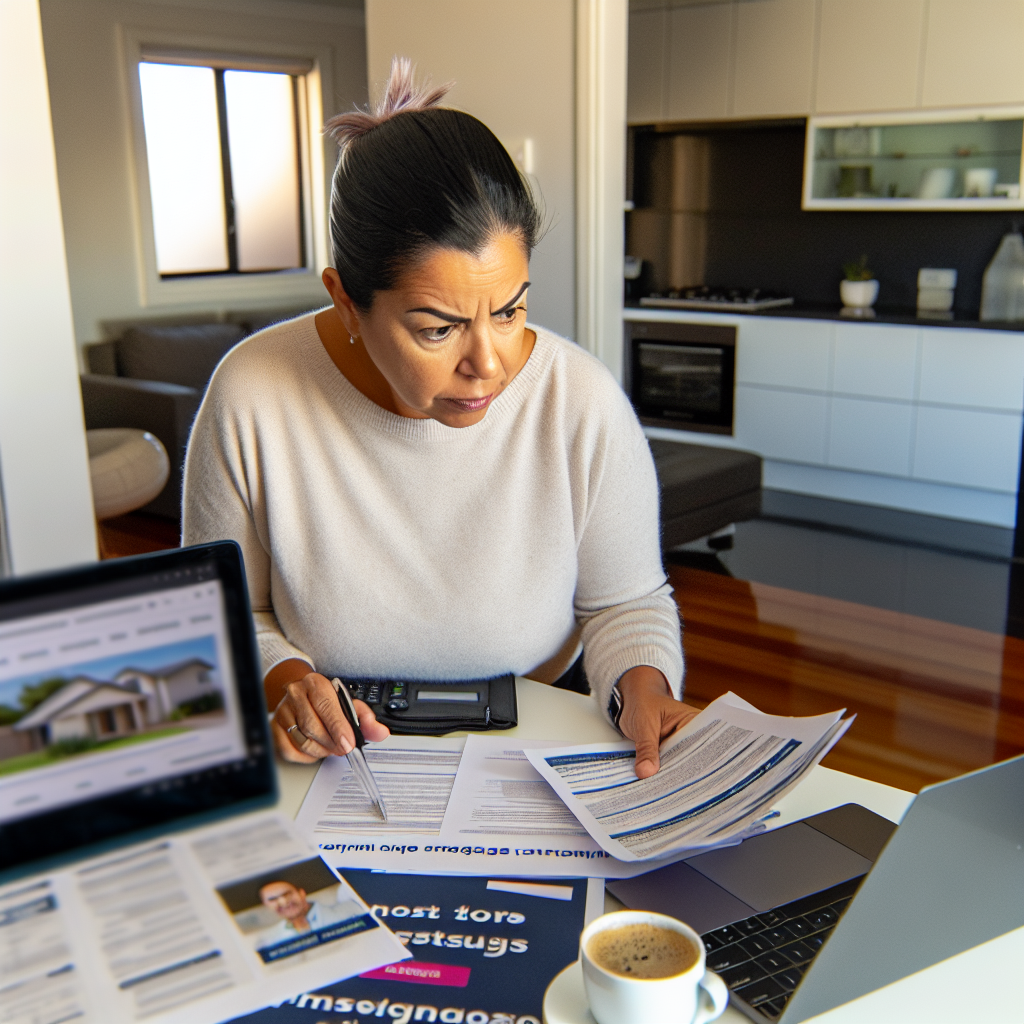Buying your first home is an exciting milestone, but it also comes with a myriad of financial considerations. From the initial deposit to the ongoing mortgage repayments, the process can be daunting, especially for first-time buyers. In this comprehensive guide, we’ll delve into the various costs beyond the purchase price, such as stamp duty, inspection fees, and insurance. We’ll share effective strategies for saving up for a deposit and discuss the importance of a good credit score. Further, we’ll explore various mortgage options and government assistance programs available to first home buyers in Australia. Finally, we’ll touch upon the long-term financial commitments of homeownership and provide tips to avoid common financial pitfalls. Whether you’re just starting to think about buying a home or you’re already in the process, this article will equip you with essential knowledge and strategies for financial planning, making the journey to homeownership smoother and more manageable.
1. “Decoding Hidden Costs in Your First Home Purchase”

Buying your first home is an exciting milestone, but it also comes with its share of financial challenges. One of the key aspects of financial planning for first home buyers is understanding the hidden costs involved in the process. Beyond the sticker price of the property, there are several other expenses that you need to account for in your budgeting strategy.
One of these costs is the stamp duty, a tax levied by the government on property purchases. The amount varies depending on the location and price of the property. For instance, if you’re buying in Perth, it’s crucial to account for the stamp duty in your first home savings plan.
Inspection fees are another potential expense. Before purchasing a property, it’s advisable to have it professionally inspected to uncover any potential issues. This could include structural problems, plumbing or electrical faults, or pest infestations. While this might seem like an unnecessary cost, it could save you from expensive repairs down the line.
Home insurance is another cost that is often overlooked by first-time buyers. This is crucial for protecting your investment against damage or loss. The cost of insurance can vary significantly, so it’s worth shopping around for the best deal.
When saving for a house deposit, these additional costs should be factored into your financial plan. This may require adjusting your saving goals or looking for ways to cut down on other expenses. Budgeting strategies for first-time home buyers should include tracking all potential costs and setting aside a portion of income specifically for these expenses.
As a first home buyer in Perth, you can also take advantage of the first home owner grant Perth and other government assistance for first home buyers Perth. These programs can offer financial relief and make the home buying process more affordable.
Understanding these hidden costs and planning for them can help you make a more informed decision when buying your first home. This home buying financial guide can help you navigate these costs and make your dream of owning a home a reality.
Remember, a good credit score can also play a major role in your home loan options in Perth. Therefore, it’s crucial to improve your credit score and maintain good financial habits.
All these financial considerations for buying your first home may seem overwhelming initially, but with careful planning and research, you can navigate these challenges effectively. So, start your property buying budget plan today and take the first step towards owning your dream home in Perth.
2. “Effective Strategies for Saving for Your First Home Deposit”

Saving for a house deposit can often feel like a daunting task, especially for first home buyers. However, with careful financial planning and a clear savings strategy, it’s entirely achievable. Here are some effective strategies that can help you save for your first home deposit.
Firstly, it’s important to set a clear financial goal. Knowing how much you need to save for a deposit is a crucial first step in the financial planning for first home buyers. Generally, you’ll need to save at least 20% of the property’s purchase price. If you’re buying your first home in Perth, for instance, and the property costs $500,000, you’ll need to save at least $100,000 for a deposit.
Once you have a clear goal in mind, consider setting up a dedicated savings account. This will separate your deposit savings from your daily spending money, reducing the temptation to dip into your savings. Many first home buyers find it helpful to automate their savings. This means setting up an automatic transfer to your savings account each time you get paid. It’s a simple but effective strategy that ensures you’re consistently saving for your house deposit.
Budgeting is another key part of the saving process. First home buyer budgeting tips often recommend tracking your spending to identify areas where you could potentially cut back. A detailed budget can help you understand where your money is going and highlight areas where you could make savings. You might be surprised at how small changes can add up over time.
It’s also worth exploring government assistance for first home buyers. In Perth, the First Home Owner Grant (FHOG) can provide significant financial assistance to eligible first home buyers. This can greatly reduce the amount you need to save for a deposit.
Investing in a first home savings plan can also be beneficial. These plans often offer higher interest rates than regular savings accounts, helping your deposit grow faster.
Lastly, don’t underestimate the value of professional advice. A financial advisor can provide tailored strategies for saving for a house deposit, based on your income, expenses, and financial goals.
Remember, buying your first home is a significant financial commitment. It requires careful financial planning, budgeting, and saving. But with the right strategies and a bit of patience, you can save up for your first home deposit and step onto the property ladder. Don’t rush the process. Take your time to understand all the financial considerations for buying your first home and make a plan that works for you.
3. “Navigating the World of Mortgages for First Home Buyers”

Navigating the world of mortgages can be a daunting task, especially for first home buyers. However, understanding the various mortgage options available is a key part of financial planning for first home buyers. It’s not just about finding a home you love; it’s about finding a mortgage that fits your budget and financial goals.
One of the first things to consider when saving for a house deposit is how much you can afford to borrow. This will largely depend on your income, expenses, and the interest rates available. There are numerous online calculators that can help you determine this, but it’s also a good idea to speak with a financial advisor.
In Perth, there are several mortgage options for first-time buyers. These include traditional fixed-rate loans, variable rate loans, and split loans which have a combination of fixed and variable rates. Each of these loans has its pros and cons. A fixed-rate loan, for example, offers stability as your repayments will remain the same over the fixed term, but you won’t benefit if interest rates decrease. On the other hand, a variable rate loan allows you to benefit from decreasing interest rates, but your repayments could also increase if rates rise.
Comparing interest rates is an essential step in the home buying process, but it’s equally important to compare other loan terms. This includes the loan’s duration, repayment frequency, fees, and features such as offset accounts or the ability to make additional repayments without penalty.
Your credit score can significantly impact your ability to secure a home loan. A good credit score can result in better loan terms, including lower interest rates. If your credit score needs improvement, there are several steps you can take, such as paying bills on time, limiting credit card usage, and regularly checking your credit report for errors.
In Perth, the government also provides assistance to first home buyers. The First Home Owner Grant (FHOG) is a one-off payment to help with the costs of buying or building a new home. There are also other government programs that could help reduce your deposit size, such as the First Home Loan Deposit Scheme.
Finally, don’t forget to consider the long-term financial commitments of a mortgage. This includes ongoing costs such as property taxes, insurance, maintenance, and potentially strata fees if you’re buying an apartment or unit.
In conclusion, navigating the world of mortgages requires careful planning and consideration. By understanding your financial situation, exploring different options, and seeking professional advice, you can find a mortgage that suits your needs and helps you achieve your goal of owning your first home.
In conclusion, purchasing your first home can be an exciting but complex process. It involves understanding and planning for various costs beyond the purchase price, including stamp duty, inspection fees, and insurance. Saving for a deposit requires setting clear financial goals and automating savings, while securing a mortgage necessitates careful comparison of interest rates and loan terms. A good credit score is vital for loan approval, but there are also government assistance programs and grants available to aid first home buyers. Long-term financial planning is crucial, as is the ability to avoid common financial pitfalls. By taking a proactive approach and seeking professional advice if needed, first home buyers can navigate the financial journey of home buying with confidence and ease. With the right resources and strategies, your dream of owning a home in Perth can become a reality.